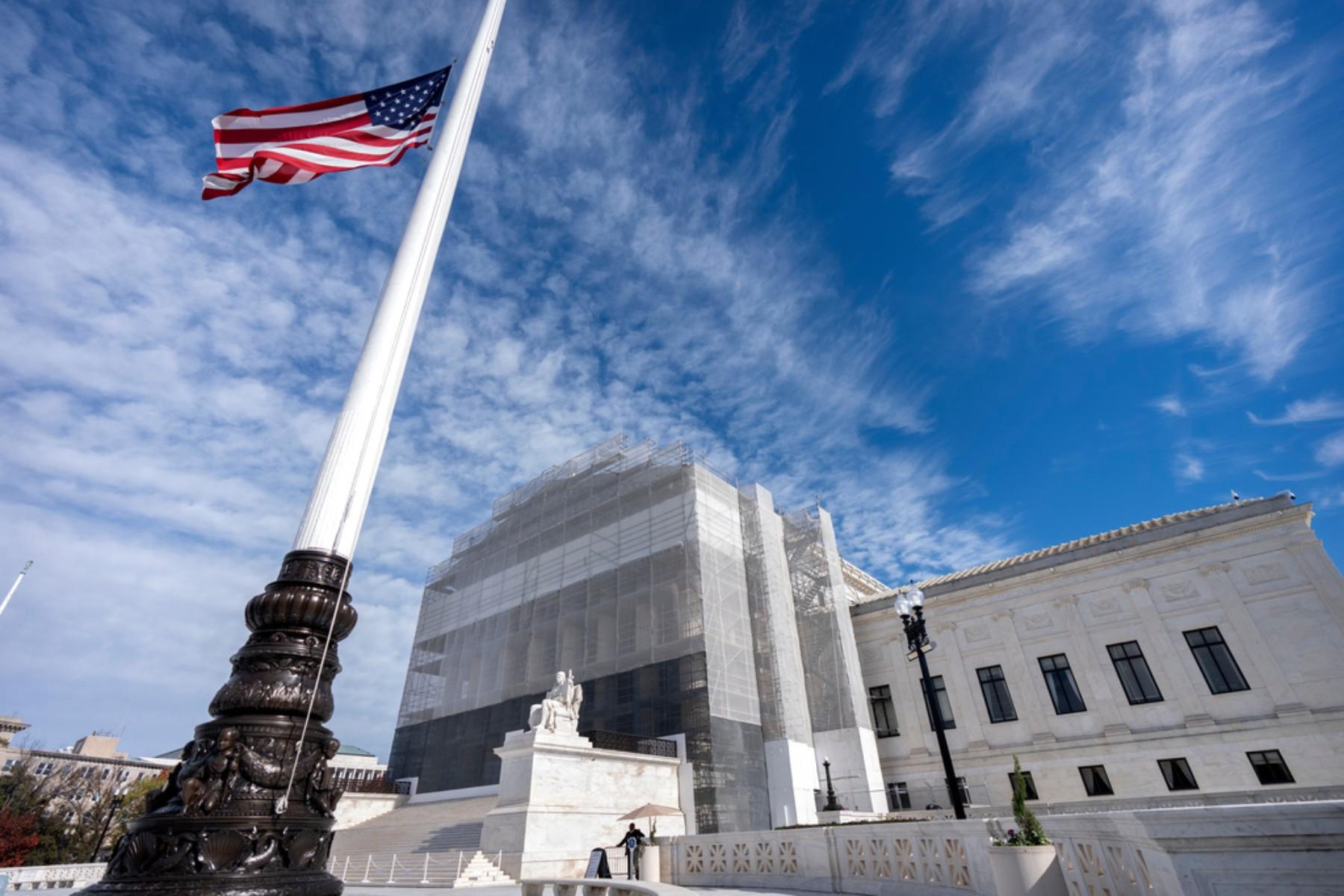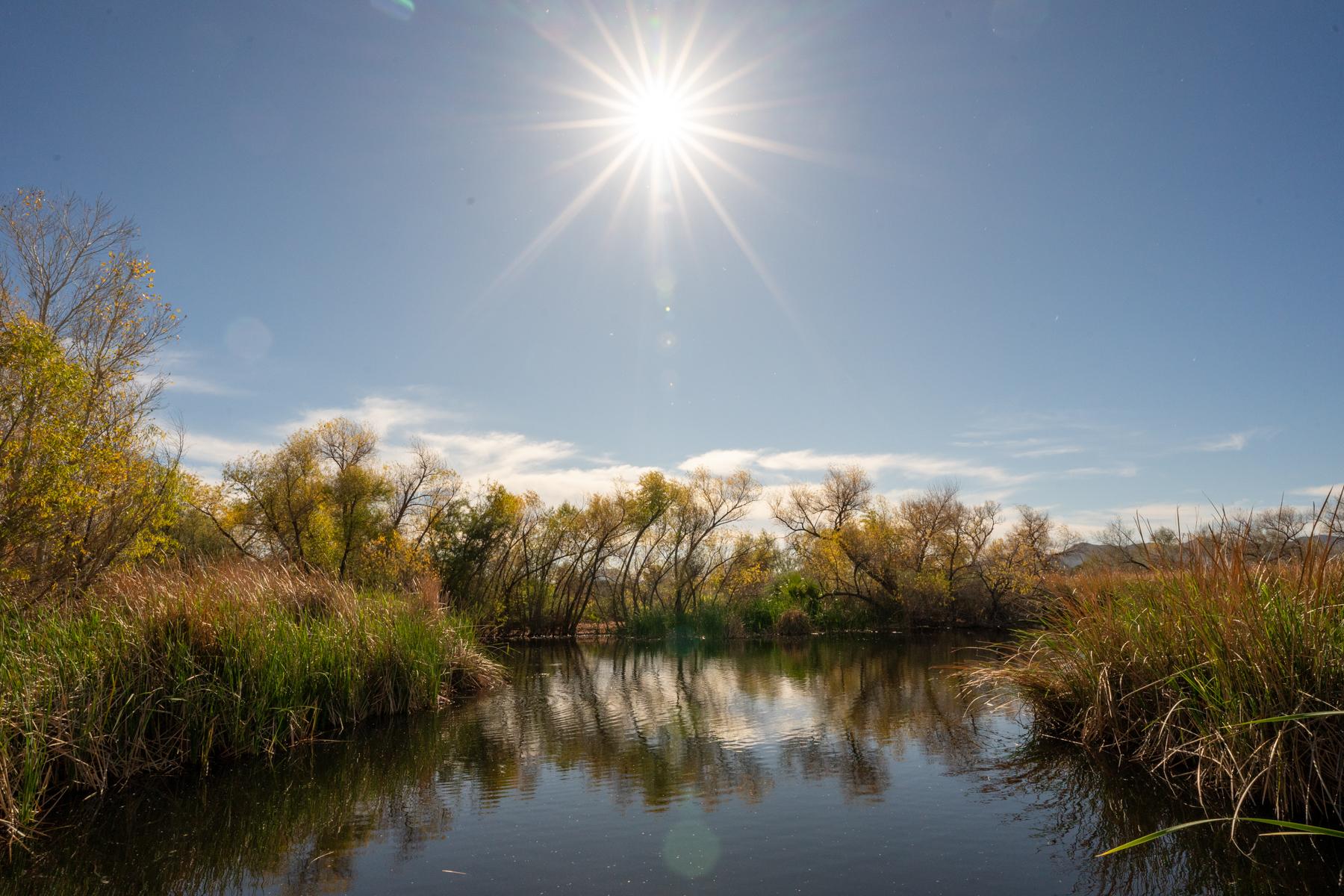
Rep. Diana DeGette returned to Washington as the most senior member of Colorado's congressional delegation and in the political majority.
But tempering the Democratic Party's newfound control in the House is the government shutdown, now entering its third week.
DeGette talked to Colorado Matters about the ongoing shutdown and her work to reopen some financial federal agencies. The District 1 congresswoman also discussed the wall, border security and anti-President Donald Trump comments made by freshman Congresswomen Alexandria Ocasio-Cortez and Rashida Tlaib.
Interview Highlights
On why she believes the wall isn't a popular idea or an effective one:
"Well actually, for Donald Trump, this was his mantra when he ran for election and this is how he appeals to his base. Unfortunately for Donald Trump, a minority of Americans think a wall is a good idea. Most Americans, while they support border security just like the Democrats in Congress, they think a wall is a bad idea.
I said to someone the other day, as a Democrat, people don't always think of me as the party of fiscal responsibility, but what I say is, 'Why would I say to Donald Trump, because he's throwing a fit and closing the government down, "I'm going to give you $5 billion to build a wall that all the experts agree won't work, when we could spend less money than that, have more effective border security and have a better message to the world?"'"
On how her Coloradan constituents are handling the government shutdown:
"Well Colorado, of course, we have a lot of federal workers here in Colorado. We have a lot of public lands. We've been hearing from constituents about conditions in the national parks and in some of the national forests. We've also heard from workers who are concerned they're not going to be able to pay their rent. I tell them I'm doing my best to open up the government as quickly as possible.
So, this week, we're going to start passing a whole series of bills, starting with reopening the financial sectors so that people can get their tax refunds back. That's going to impact millions of Americans if they can't get their tax refunds, the IRS and those agencies, and then we're going to start trying to reopen those other agencies. One of the ironies of this shutdown is many of the agencies that are shut down have absolutely nothing to do with the border security issue."
On comments made by Congresswomen Alexandria Ocasio-Cortez and Rashida Tlaib:
"Well I think that these new freshman, which is the largest freshman class since the 1970s, really are bringing in a new approach and a new way of thinking, and I think that always really is helpful to have the new thought. I may not have used some of the same words that Congresswoman Tlaib used, but I think that, really, Donald Trump is kind of a poor critic of that kind of language given some of the language he's used. I also will say I do think Donald Trump is a racist based on his tweets, not just since he's been president, but when he was running for president."
Full Transcript
Ryan Warner: This is Colorado Matters from CPR News. I'm Ryan Warner. The most senior member of Colorado's congressional delegation, Democrat Diana DeGette, returns to Washington D.C. in the majority. Democrats now control the House, but tempering their victory is the government shutdown, now in its third week. So what's next and what else is on the congressional agenda? Congresswoman DeGette, welcome back to the program. Congresswoman Diana DeGette: Always good to be with you. RW: The shutdown is a fast-moving story. We're speaking Monday afternoon, I'll note. The president has announced he'll address the nation. Right now, where do you think things stand? DG: We'll we've got to reopen the government. I mean the whole shutdown of the government was the president's idea, he even said so at the time, and he's shut it down because he wants to get his wall. But not only are hundreds of thousands of government employees being impacted, but millions of Americans are being impacted. So the position the Democrats are taking is, "Open the government and then let's figure out what to do about real border security." We know that we need border security, particularly at the ports of entry, which is where most of the illegal drugs come in, but to shut down the government for three weeks because you want a wall that everybody agrees won't work to be built seems to be a very poorly thought out and harmful approach. RW: I want to play you this from NPR's Morning Edition. It's from conservative writer Jonah Goldberg, editor of the National Review and he's discussing how the wall isn't purely bricks and mortar. Voice of Jonah Goldberg: It's very difficult to compromise on something symbolic. For Donald Trump and his biggest supporters, the wall is symbolic of his presidency, it's symbolic of the reason why he was elected and if he backs down on that, it's basically a major cave of the whole sort of MAGA agenda. So when I say it's symbolic, I'm not trying to minimize it. It's that people are now investing elements of this sort of identity and their worldview into this fight. RW: MAGA, Make America Great Again, and he argues this is just as symbolic for Democrats. Is Jonah Goldberg right? Is this why the two sides seem so entrenched because it's not about the wall, it's about like the idea of the wall? DG: Well actually, for Donald Trump, this was his mantra when he ran for election and this is how he appeals to his base. Unfortunately for Donald Trump, a minority of Americans think a wall is a good idea. Most Americans, while they support border security just like the Democrats in Congress, they think a wall is a bad idea. I said to someone the other day, as a Democrat, people don't always think of me as the party of fiscal responsibility, but what I say is, "Why would I say, to Donald Trump because he's throwing a fit and closing the government down, 'I'm going to give you five billion dollars to build a wall that all the experts agree won't work when we could spend less money than that, have more effective border security and have a better message to the world?'" RW: OK. You've said all the experts, everyone agrees the wall is a bad idea. What do you base that on? DG: I - well all of the evidence I've seen says that the best way to enforce border security is a combination of electronic surveillance - in some places, you need to have personnel. In some places, you may need to have some barbed wire or some fencing like that, and then in some places, you might need to have a wall. You'd think everybody would be able to sit down together and say, "All - we all share the goal of good border security. How are we going to make that work in the most cost-effective and efficient way?" RW: You noted earlier that this was just a huge part of Donald Trump's campaign. To that end, I want to ask you: isn't the wall a mandate? In other words, this was a man elected, in no small part, because he wants a wall built. If Democrats are resistant to that, are they resistant to the forces that brought this man to the White House? DG: Well I'm not sure everybody voted for Donald Trump because of the wall and as I said, right now, a minority of Americans - a small minority think - a fairly small minority think that there should be a wall. A much larger number of Americans think that we should have robust border security. RW: So you talked about the effects of the shutdown on, certainly, government workers and on constituents. I wonder if you've heard from constituents specifically asking for relief, telling you their plight and if you might share that with us. DG: Well Colorado, of course, we have a lot of federal workers here in Colorado. We have a lot of public lands. We've been hearing from constituents about conditions in the national parks and in some of the national forests. We've also heard from workers who are concerned they're not going to be able to pay their rent. RW: What do you tell them or what do you have your staff tell them? DG: Well, I tell them I'm doing my best to open up the government as quickly as possible. Last week, we passed bills which the Republican Senate had already passed, but then they didn't pass in the Republican House before the new Congress. So we passed the same bill in the House that they had passed in the Senate, but now Mitch McConnell and Donald Trump say, "No, they're not going to do that bill." So this week, we're going to start passing a whole series of bills, starting with reopening the financial sectors so that people can get their tax refunds back. That's going to impact millions of Americans if they can't get their tax refunds, the IRS and those agencies, and then we're going to start trying to reopen those other agencies. One of the ironies of this shutdown is many of the agencies that are shut down have absolutely nothing to do with the border security issue. RW: Any sense if Mitch McConnell will support such a - kind of a narrow reopening? DG: Well, we're beginning to see more and more senators understand that their constituents are being harmed. Of course, our own Cory Gardner, last week, was one of two senators who announced that we should just open the government and then talk about what to do about border security. RW: Well, I'll say that CPR News had a conversation last week with Cory Gardner and yours is one of a number of voices of the delegation we're hearing on this issue. Diana DeGette, is it strange to be getting a paycheck yourself while many other government workers are not? DG: Well some would argue about whether I was an essential worker or not, but I am working hard to keep the government open. In the past, what we have done is we have compensated the people, retrospectively, who were not paid during the shutdown and what I have said is I expect that those federal workers will be compensated and also, I expect that the federal contractors will be compensated, and I want to make sure that will happen, and if we don't compensate those federal workers, then I won't take my paycheck. RW: The contactors, that's interesting because they've often been left in the lurch, I think, after previous — DG: Right. We're going to try to compensate them, too. We've already introduced legislation. Eleanor Holmes Norton, the Congresswoman from Washington D.C., has a bill on this and there are others too, but surely, the federal workers should be paid in retrospect and they always have been in the past. RW: Congresswoman Diana DeGette's our guest. Let's talk about the 2019 Congress, which indeed convened last Thursday. Some other noteworthy things to discuss: speaking of President Trump, on 60 Minutes over the weekend, a first-year Congresswoman, Alexandria Ocasio-Cortez said, "There's no question that Trump is a racist." This comes on the heels of another freshman, Rashida Tlaib of Michigan, who expressed, in somewhat profane terms, her desire to see the president impeached. Do you agree with their approach, which is, I suppose, as straightforward as the president's? DG: Well I think that these new freshman, which is the largest freshman class since the 1970s, really are bringing in a new approach and a new way of thinking, and I think that always really is helpful to have the new thought. I may not have used some of the same words that Congresswoman Tlaib used, but I think that, really, Donald Trump is kind of a poor critic of that kind of language given some of the language he's used and I also will say I do think Donald Trump is a racist based on his tweets, not just since he's been president, but when he was running for president. RW: What else do you hope is on the House's agenda in the coming weeks? DG: Well, the first thing we have to do is open the government. Then the next thing: we have a bill that we've put together. It's a broad attempt to, what we say, drain the swamp. It's campaign finance reform, ethics reform, making the Voting Rights Act whole again and a whole bunch of things we really need to do to restore the American public's faith in Congress and to make sure that we're running an open and fair and transparent Congress. And then after that, I'm going to be the chairperson of a very important subcommittee, the Oversight and Investigations subcommittee of Energy and Commerce. I mean, I have subpoena authority and all of the testimonies under oath. I'm going to be looking at climate change. I'm going to be looking a prescription drug prices and the very first hearing that I'm going to have is around the kids at the border and the way HHS is treating them, and the administration's policies and how we can have a policy towards refugees, particularly children, that's going to be more humane and more American. RW: Congresswoman, thank you for being with us. DG: Great being with you. Take care. |









